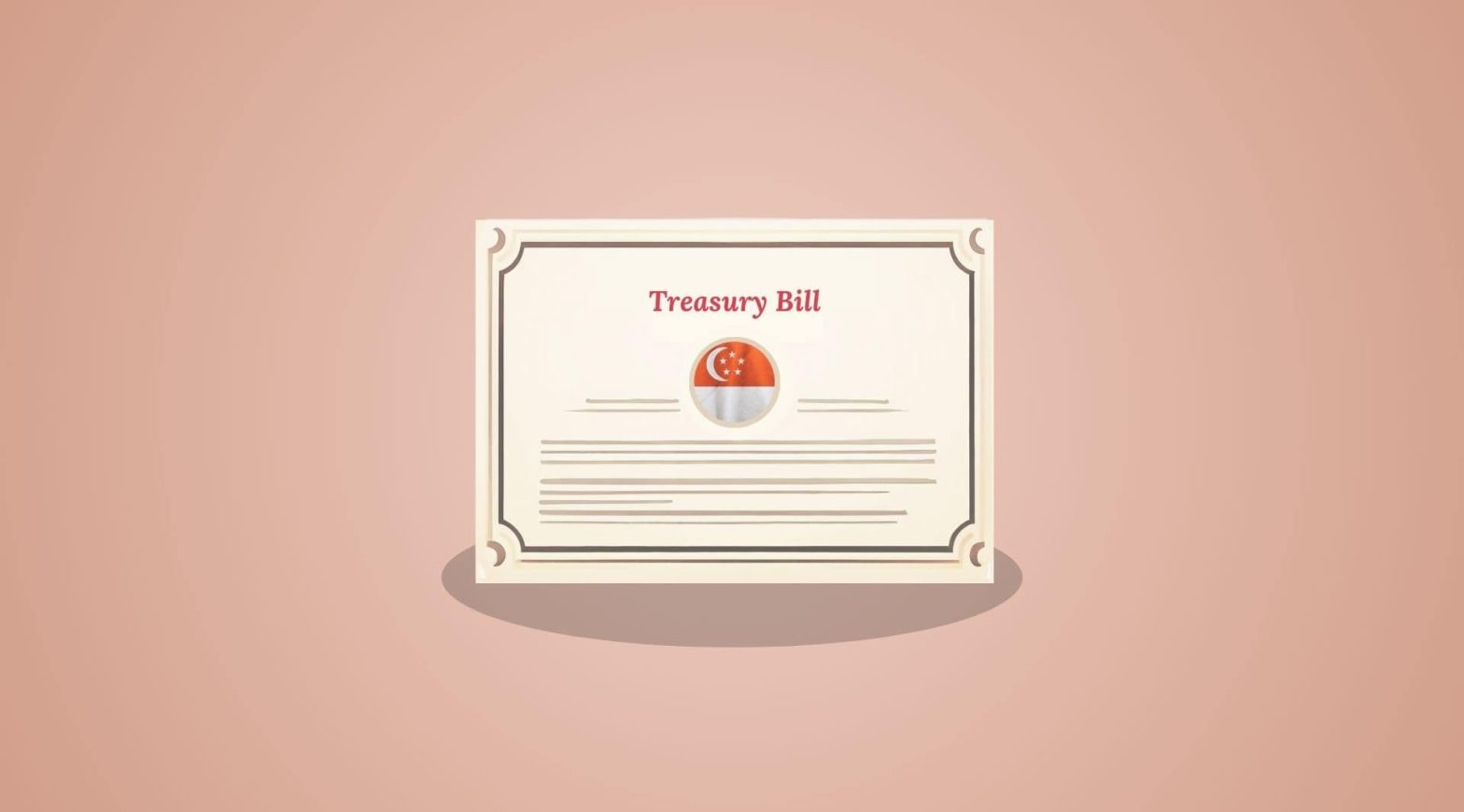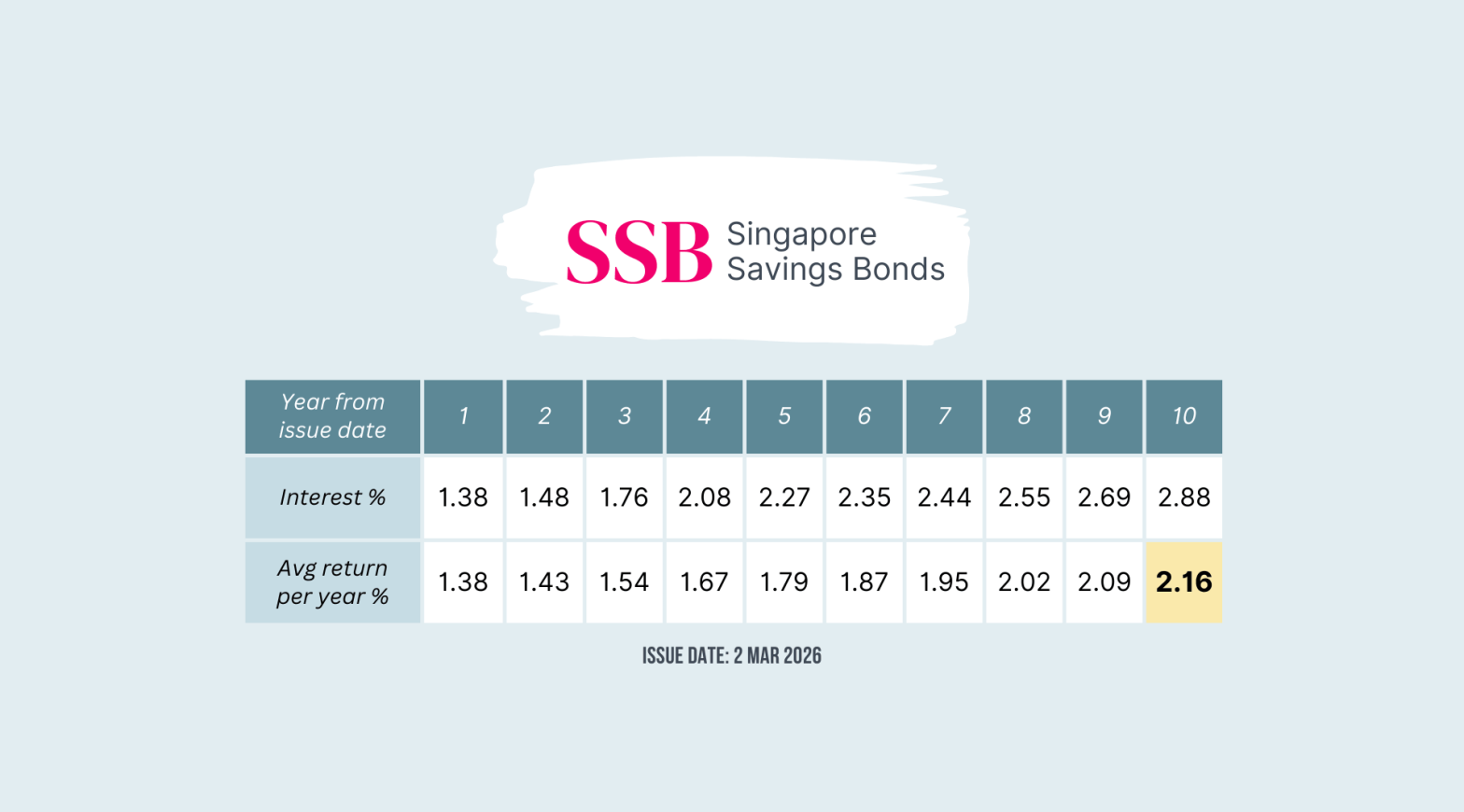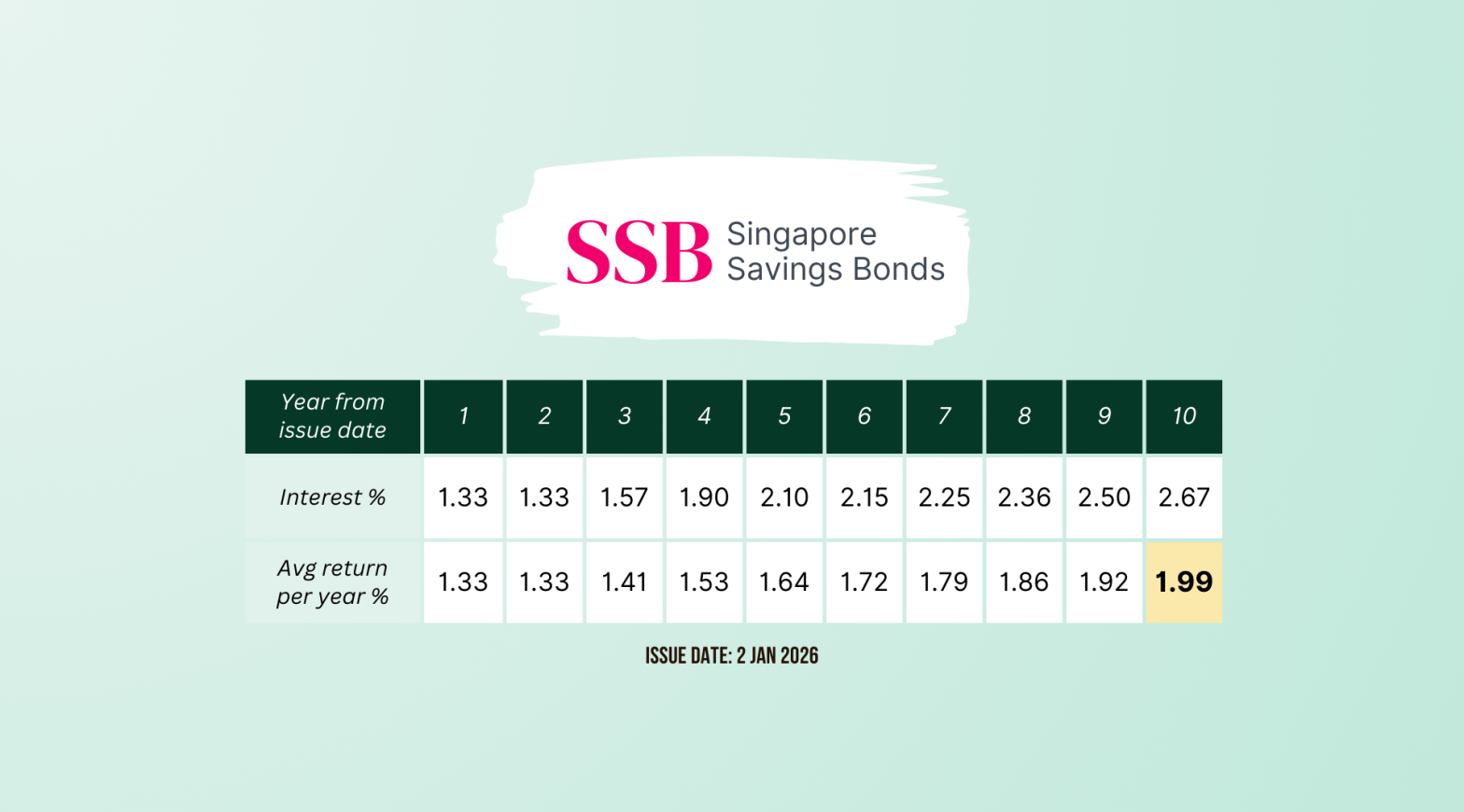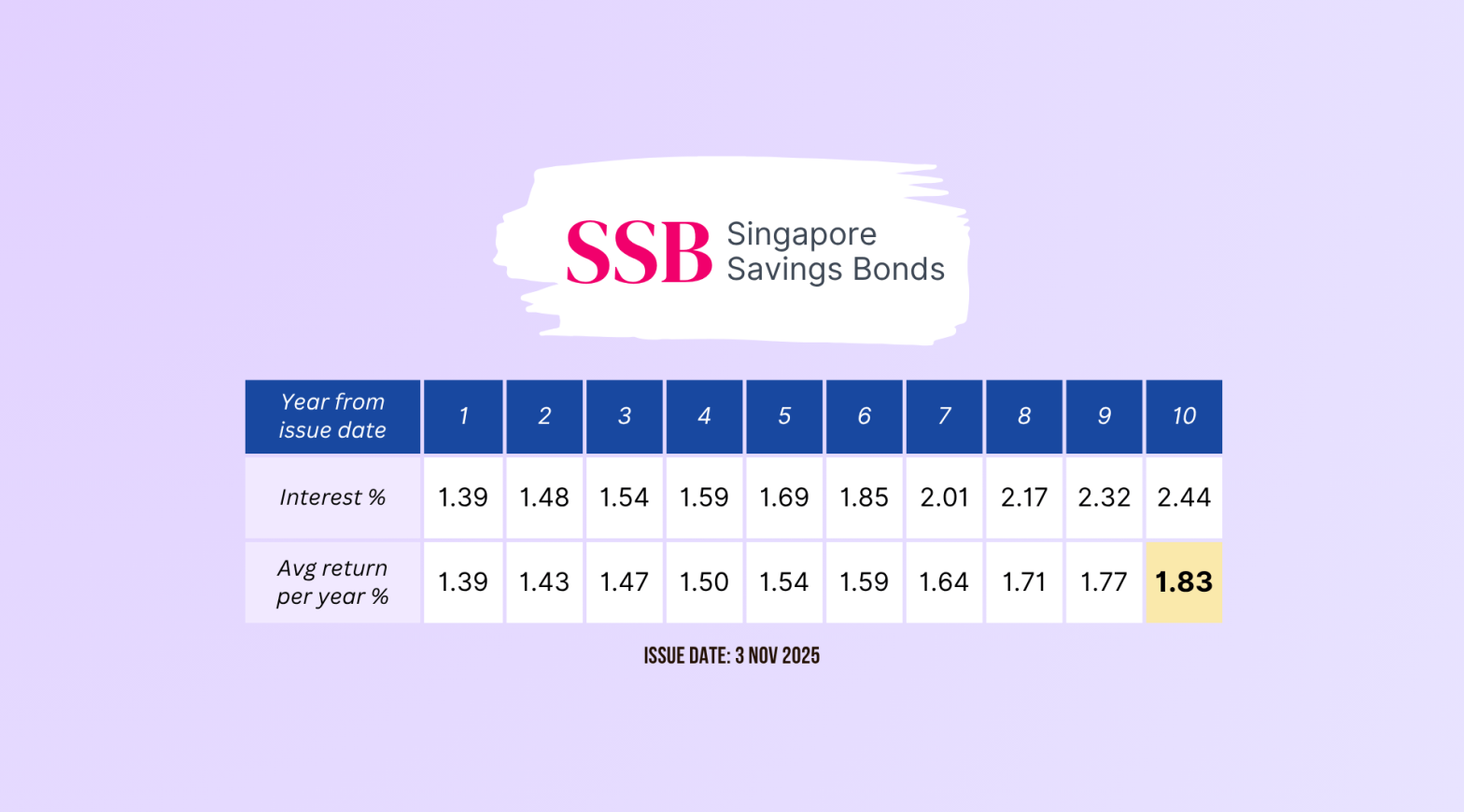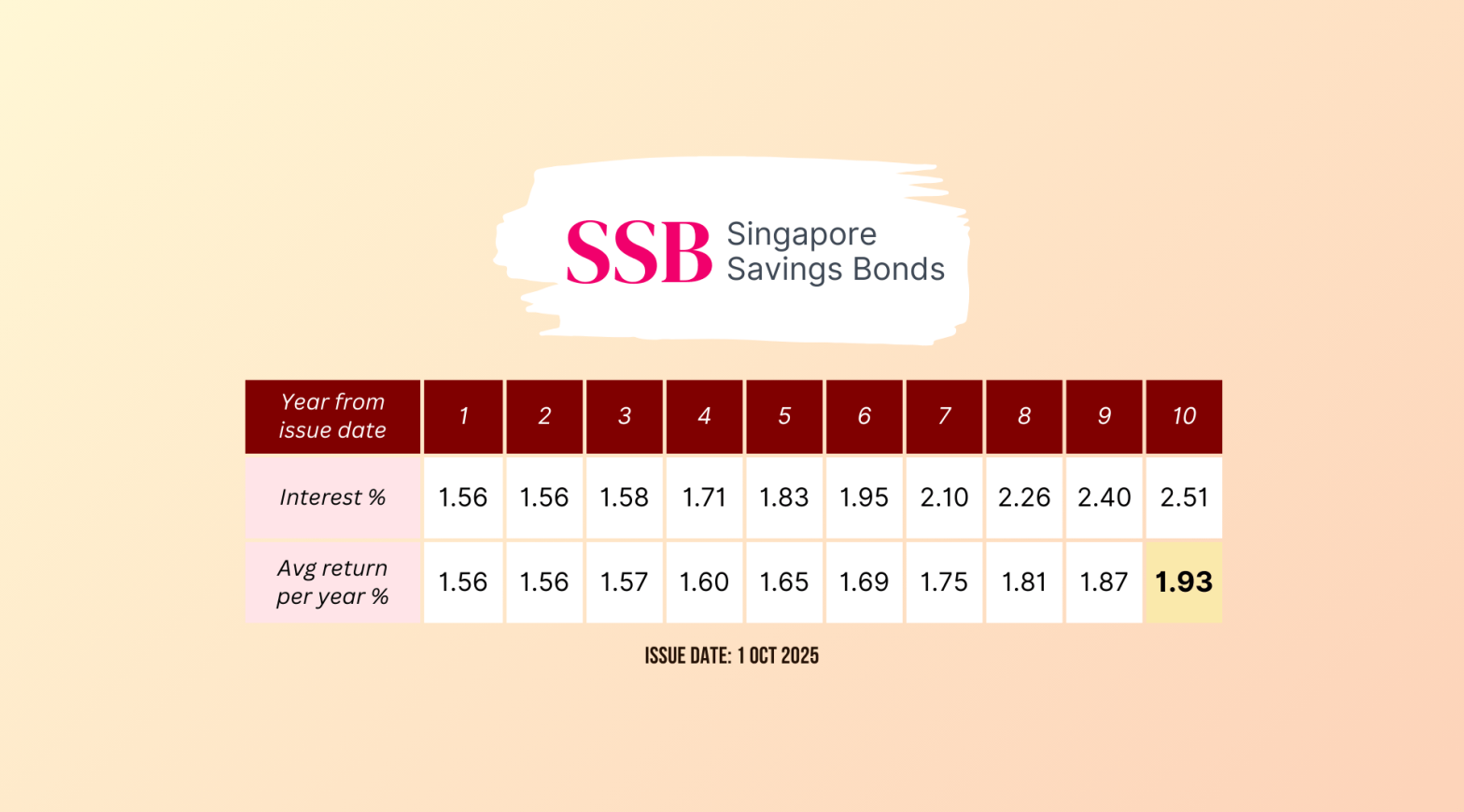The latest auction for 1-year T-bill 1 Aug 2023 (BY23102N) concluded with a cut-off yield of 3.74%. This yield is a jump from the previous auction, which yielded only 3.58%. What an excellent result for investors, and congrats to those who got the allocation! Why did the yield rise quite significantly? Let’s look at the auction summary:
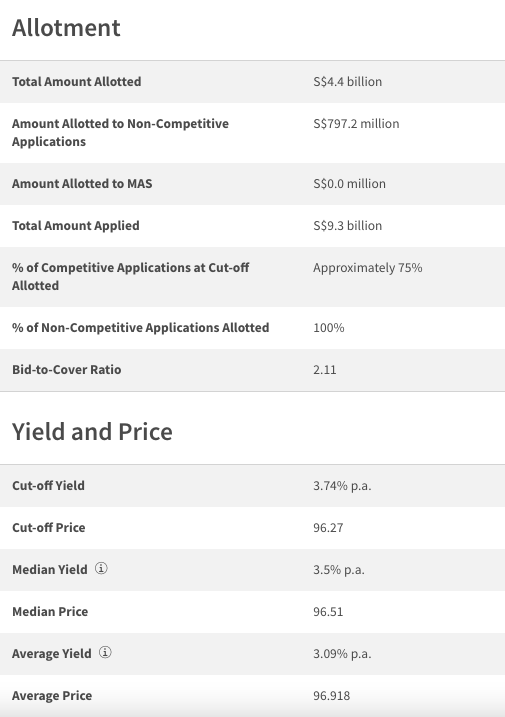
Jump in T-bill Yield
Investors should be pleased with the auction result for this T-bill 1 Aug 2023 (BY23102N). The cut-off yield of 3.74% was an upside surprise that investors happily welcomed.
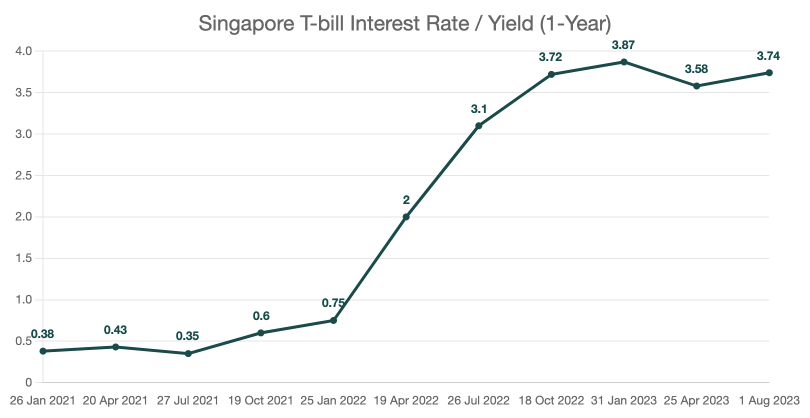
For more details on the 1-year T-bill interest rates, refer to our Singapore T-bill interest rate coverage.
The 3.74% yield is quite a jump from the previous yield of 3.58%. It is one of the highest levels in recent years. Given that we may be reaching the tail-end of the current rate hike cycle, most investors do not expect the 1-year T-bill rate to defy the market expectation and jump to the recent high levels. What may contribute to this higher yield?
Low T-bill Demand
This T-bill 1 Aug 2023 (BY23102N) saw a relatively low demand. It dropped quite a bit! This auction saw a total application amount of $9.3 billion, while the previous auction reached $12.7 billion. Why such a drop?
In addition to institutional investors, 1-year T-bills have attracted many retail investors who use CPF due to the CPF’s unique quirk of potentially losing one or two months of CPF interest. This quirk has encouraged CPF applicants to apply for the longer 1-year maturity. The not-so-good news for this auction is that the likelihood of losing two months of interest is high for this issuance. This may contribute to the lower demand for the T-bill from the CPF applicants.
Additionally, there are other options for cash holders, such as the 6-month T-bill, which last yielded 3.85%. Indeed, the previous 6-month T-bill auction saw a jump in demand.
The market forces could be at play here. With the demand being on the low side, it’s normal for the yield to rise.
Competitive vs. Non-Competitive Bids
If you had followed the 6-month T-bill auction, you would have known that the quota for non-competitive bids was reached in the recent auctions. This phenomenon did not happen in the 1-year T-bill, as the total allocation was still way below the maximum allocation for the non-competitive bids. Unlike the 6-month T-bill auction, using non-competitive bids for a 1-year T-bill auction is still a relatively safe way to get your desired allocations.
However, if you apply using CPF, it is still preferable to use competitive bids to ensure that you earn more than what CPF has to offer by default.
1-Year T-bill Alternatives
How competitive is this latest 1-year T-bill 1 Aug 2023 (BY23102N) yield of 3.74%? Let’s compare it to the alternatives.
The most obvious alternative is the 6-month T-bill. Although shorter in duration, both are still considered short-term instruments. The latest 6-month T-bill yield was 3.85%. With a relatively small difference in yield, we believe that the 1-year T-bill, which yields 3.74%, is an attractive proposition because it allows investors to lock in a relatively high rate for a more extended period. With the market expecting Fed’s pivot to start next year, it may be an excellent time to lock in this higher rate now.
How about fixed deposits? You can compare the latest fixed deposit rates with the 1-year T-bill yield. With the highest 12-month fixed deposit rates hovering around 3.40-3.45%, it is safe to say that the 1-year T-bill is more attractive at the moment.
If you are an investor with the lowest risk profile who seeks capital preservation, the 1-year T-bill may be a good choice as you can lock in the higher rates for longer.
If you are an investor with a higher risk profile, you may want to position your portfolio to benefit from the possibility that we have entered the tail-end of this rate hike cycle. Asset classes, such as REITs, and stocks/ETFs, may benefit when the interest rate reverses. If you want to learn more about Singapore REITs, you can check out our Singapore REITs data or our guide on Singapore REIT ETF.
Are you interested in the 1-year T-bill? If yes, you may follow our step-by-step guide on how to buy T-bills.
